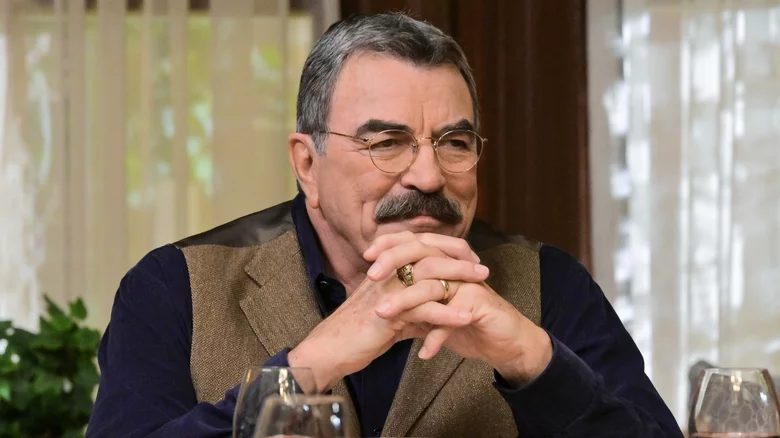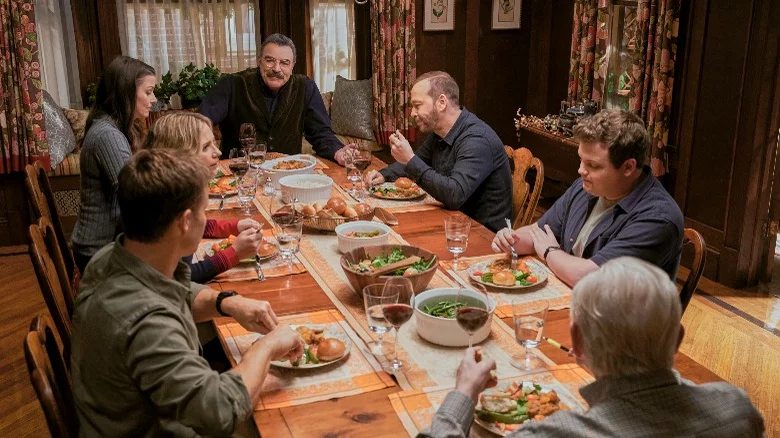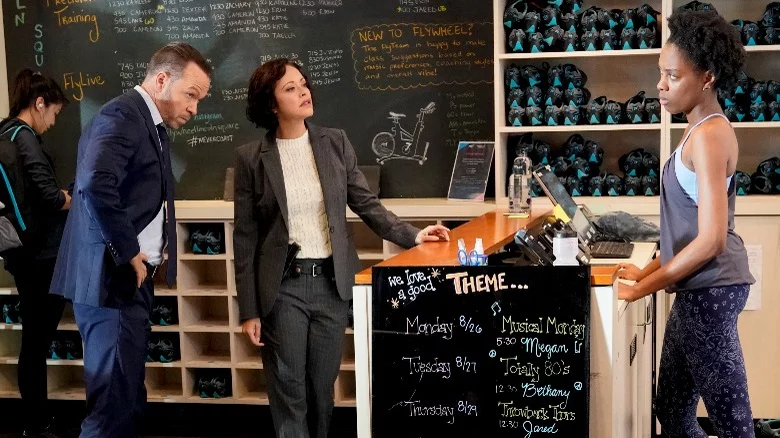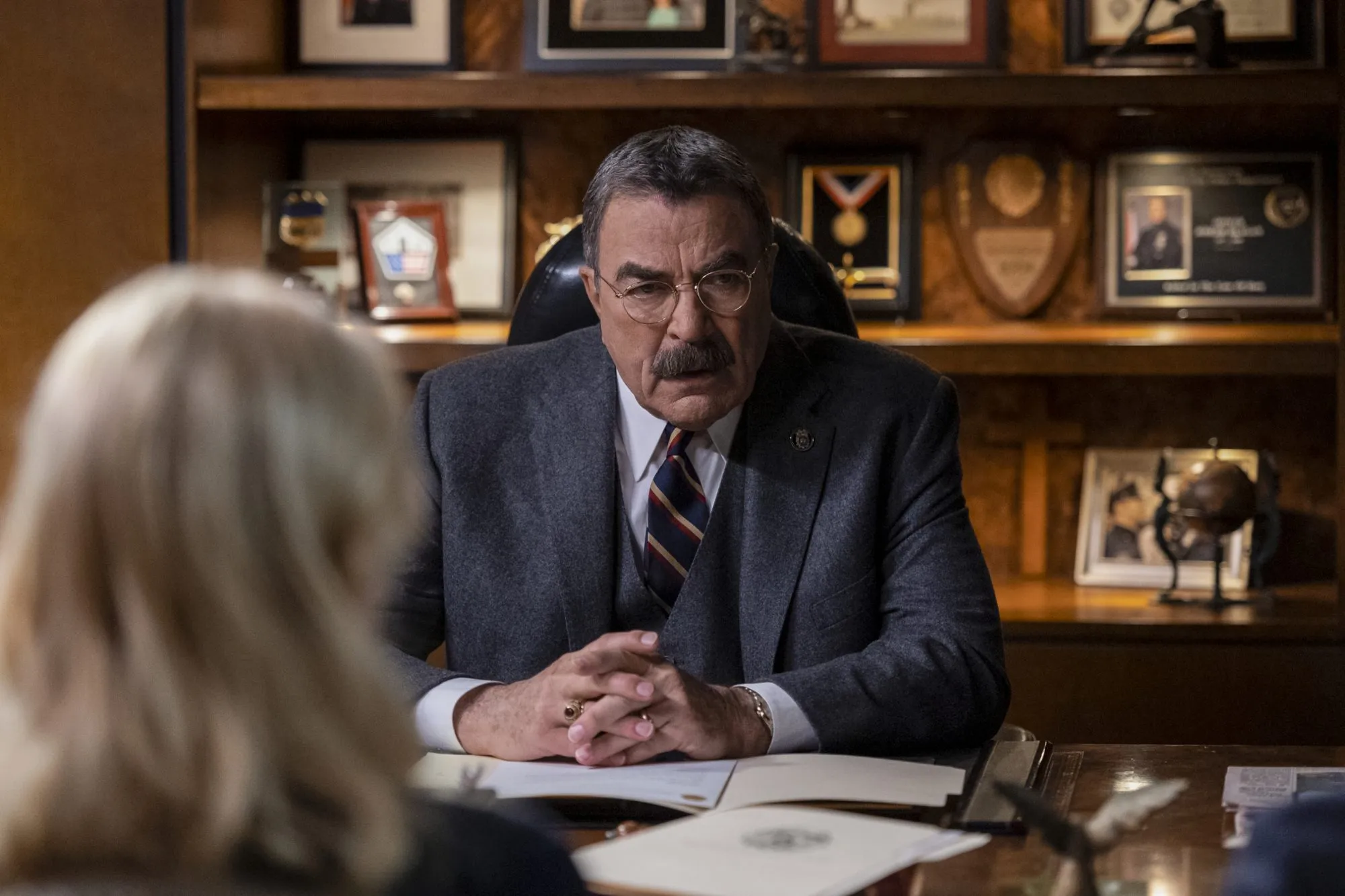The CBS police procedural “Blue Bloods” focuses on the Reagans, a multigenerational law enforcement family. Francis “Frank” Reagan (Tom Selleck) serves as the New York City Police Commissioner, and his four children all work within the justice system. The close-knit family is proud of its contributions to fighting crime and takes time out of every week to celebrate its accomplishments with a family dinner. This tradition keeps their bond strong, and the togetherness it fosters also influences their approach to their professional interactions. Despite the challenges they face in their respective careers, the Reagan family members go above and beyond to support each other in times of crisis.
This strong dynamic is a major draw for viewers, many of whom have faithfully tuned into the series since its pilot episode in 2010. Although there are plenty of things to like about the long-running crime drama, there are some aspects of “Blue Bloods” that even the most die-hard fans struggle to enjoy. Viewers across multiple online platforms have complained about a lack of realism, questionable police tactics, and some unlikeable characters. These unpopular facets of the series make it more difficult for some audiences to fully embrace everything that “Blue Bloods” has to offer.
Predictable storylines

Although procedural shows are formulaic by design, the storylines of most “Blue Bloods” episodes are a little too predictable for some fans. Michael Hann of The Guardian notes that most people can easily discern what the series is about “without even watching” it due to the overwhelming similarities between episodes. Even though the Reagan family members have individual story arcs, it’s rare to see them step outside of their comfort zones, either personally or professionally. Viewers expect procedurals to operate within a consistent structure but also appreciate some variety regarding characters’ behaviors.
However, this predictability isn’t limited to the Reagan family. Most of the criminals in “Blue Bloods” also have very similar motives, and the detectives generally approach solving cases the same way week after week. Some viewers feel that the reason behind the series’ stale storylines lies with the writers who may sometimes rely too heavily on the tried-and-true procedural format. For example, one IMDb reviewer suggests that the series might benefit from adding fresh voices to the writing team because the episodes are too uniform. This reviewer echoes Hann’s assertion that all episodes are too similar, highlighting the family’s overly predictable habits. Every long-running series needs a refreshing change of pace at times, and taking some of the storylines in a new direction would improve “Blue Bloods” for many fans.
Self-righteousness

There’s a fine line between having a solid moral compass and believing that one knows the best way to operate in the world. Unfortunately, some Reagans blur that line a little too often throughout the series. Danny Reagan (Donnie Wahlberg) is an undeniably passionate detective, but his self-righteous behavior can rub fans the wrong way. One Reddit user finds Danny’s consistently correct hunches tiresome and believes that the detective should be proven wrong sometimes, writing: “If Danny likes someone as the perpetrator at the beginning, it’s guaranteed to be proven that they did it by the end of the episode.”
The Reddit user also notes that Danny rarely faces the consequences of his behavior, regardless of how unethical his behavior is while pursuing justice. He is always quick to justify both his beliefs and his behavior, and the series proves him right time and time again.
Danny isn’t the only character who irritates fans with his self-righteousness. According to another Reddit thread entitled “Jamie’s Moral Righteousness Has Hit Next Level,” many viewers have the same issue with Danny’s younger brother, Jamie (Will Estes). Several users in this thread note that his holier-than-thou attitude makes it difficult to like the young police officer and that this behavior worsens each season. Jamie can easily be a voice of reason for his hotheaded brother, Danny, but his constant moralizing also alienates many fans.
Improbable family dinners
The elaborate family dinner scenes in every episode are among the most recognizable parts of the “Blue Bloods” formula. The family patriarch, Henry (Len Cariou), gathers the whole family for a Sunday night feast in which the Reagans unwind, reconnect, and discuss the recent goings-on in their lives. The meals feature occasional guests from outside the family but are mostly limited to the core group. The family dinners are so well-known that MacMillan Publishers even released “The Blue Bloods Cookbook,” written by cast member Bridget Moynahan and Wendy Howard Goldberg, the wife of the series’ executive producer, Leonard Goldberg.
However, despite the popularity, some fans have taken issue with these family dinners because they are overly idealistic and predictable. A Reddit user even cites them as a factor in their decision to stop watching the series after only a few seasons. The user explains that someone has something profound to say at every meal: “… it just got so irritating.” The dinners often serve as a vehicle for the episode’s moral message, which can also be off-putting to certain viewers. Ironically, the family dinners aren’t exactly beloved by Tom Selleck, either. Speaking to Cinemablend in 2019, the actor said he finds filming these scenes “miserable,” mainly because the actors have to repeatedly eat the same foods for up to eight hours.
Racial stereotypes

The media’s depictions of how law enforcement sometimes treats minorities is a sensitive subject, and it has become a common theme in television shows and movies. Unfortunately, the treatment of this issue in “Blue Bloods” is something that some fans can’t support. Laura Hudson of Slate explains that the series “…has a habit of depicting people who speak up against the police as malicious, manipulative, or deceptive — and a lot of those people happen to be minorities.” Additionally, there are several instances of Reagan family members racially profiling suspects or witnesses. For example, some fans took to a Reddit thread to discuss the lack of positive African American representation in the series, and several users noted that African Americans usually appear as criminals in the show’s early seasons.
However, the series has also featured unfair characterizations of other minority groups. One particularly troubling instance of this tendency occurs in the Season 1 episode, “What You See.” As the NYPD tracks a mysterious bomber, Danny becomes determined to solve the case as quickly as possible. Unfortunately, he conflates Arabs with terrorists more than once in this episode, which angered many fans. One IMDb reviewer notes that racial profiling “jeopardizes every single citizen’s civil rights.” Though this kind of profiling is sadly realistic, fans would probably prefer to see Danny learn a lasting lesson about how wrong he was to behave in this manner.
Overdramatic characters
Working in law enforcement is often a high-stakes career choice, so naturally, the “Blue Bloods” characters exhibit strong emotions in the line of duty, however, some tend to be overdramatic. This behavior makes it difficult for audiences to take the Reagan family members seriously and detracts from the overall enjoyment of the series. One Reddit user explains: “There are copious amounts of heavy sighs in this show.” The user also comments that many Frank Reagan scenes include overly exaggerated dialogue. Many fans would argue that it’s unnecessary to overemphasize Frank’s lines to make him a strong, memorable character.
Although Frank’s overly worried nature may annoy some fans, Danny’s anger issues are equally troublesome in the early seasons. The detective gives his all to tracking criminals and solving cases, but he doesn’t know how to keep his emotions in check. His explosive temper leads to overdramatic responses to witnesses, suspects, and even his own family. He tends to overreact to situations he encounters in the field which lands him in anger management classes in the Season 3 episode “Warriors.” Unfortunately, Danny chooses to be rude and sarcastic during his sessions and gains little from the experience. His character gradually mellows out as the series progresses, but the seasoned detective always maintains his propensity for off-putting, angry outbursts.
